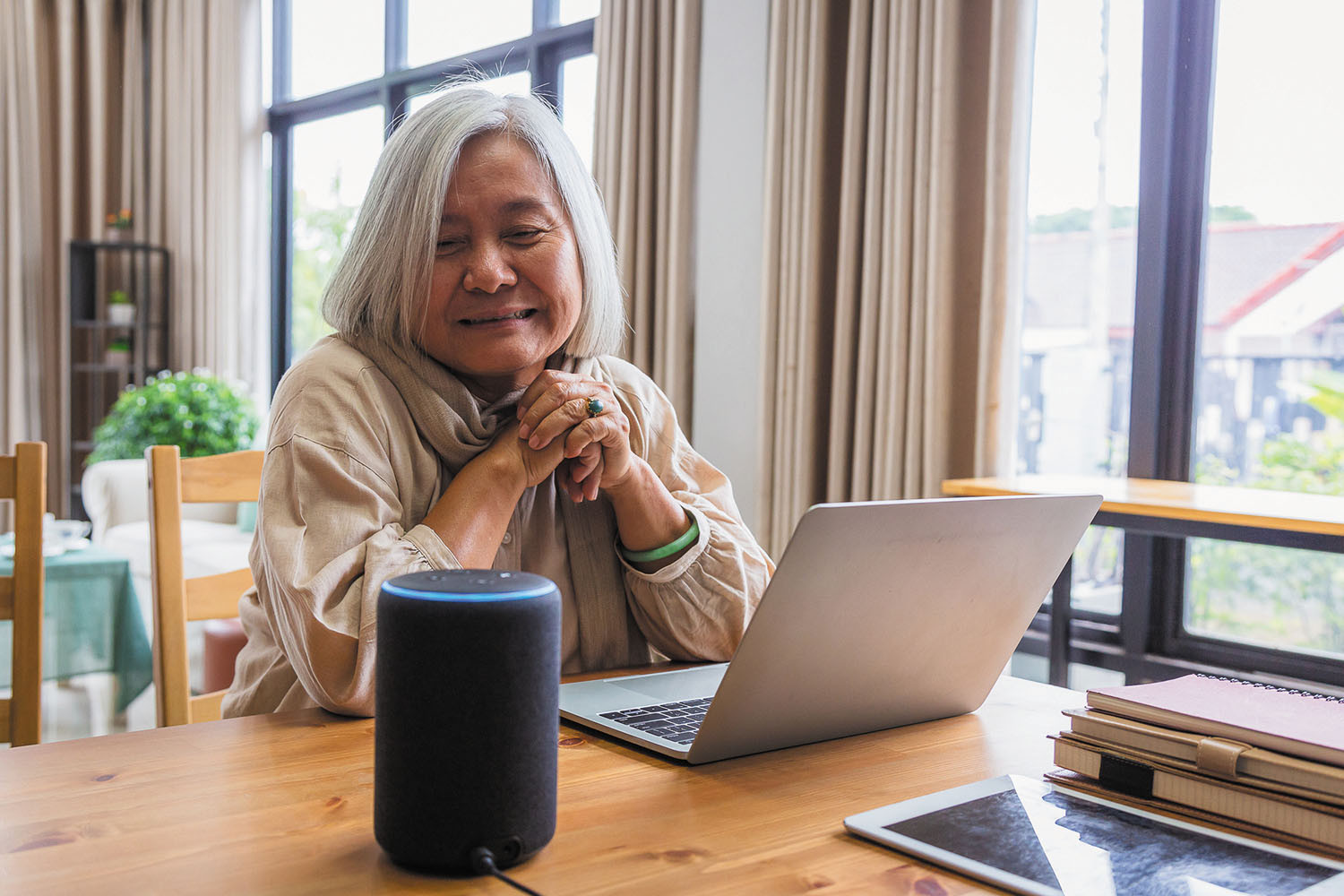Sensing abnormal heart rhythms with a smart speaker?
Research we're watching

Smart speakers such as Alexa and Google Nest come in handy for playing music or setting alarms with voice commands. But these popular devices may one day "hear" your heartbeat and detect irregular heart rhythms, a new study suggests.
Researchers programmed a smart speaker to emit an inaudible sound that bounces off a person sitting one to two feet away and back to the speaker. Artificial intelligence programs detect a heartbeat from the person’s chest wall movements and then analyze the time between heartbeats, which enables the system to identify abnormal rhythms.
They tested the system in 26 healthy people and 24 people hospitalized with heart conditions, such as atrial fibrillation and heart failure. The smart speaker closely matched the beats detected by standard heartbeat monitors. Currently, the system performs occasional spot checks of a person’s heart rhythm. But the scientists are planning future versions that could continuously monitor heartbeats when people are sleeping, which might help diagnose conditions such as sleep apnea. They published their findings March 9, 2021, in Communications Biology.
Image: © Six_Characters/Getty ImagesAbout the Author

Julie Corliss, Executive Editor, Harvard Heart Letter
Disclaimer:
As a service to our readers, Harvard Health Publishing provides access to our library of archived content. Please note the date of last review or update on all articles.
No content on this site, regardless of date, should ever be used as a substitute for direct medical advice from your doctor or other qualified clinician.















